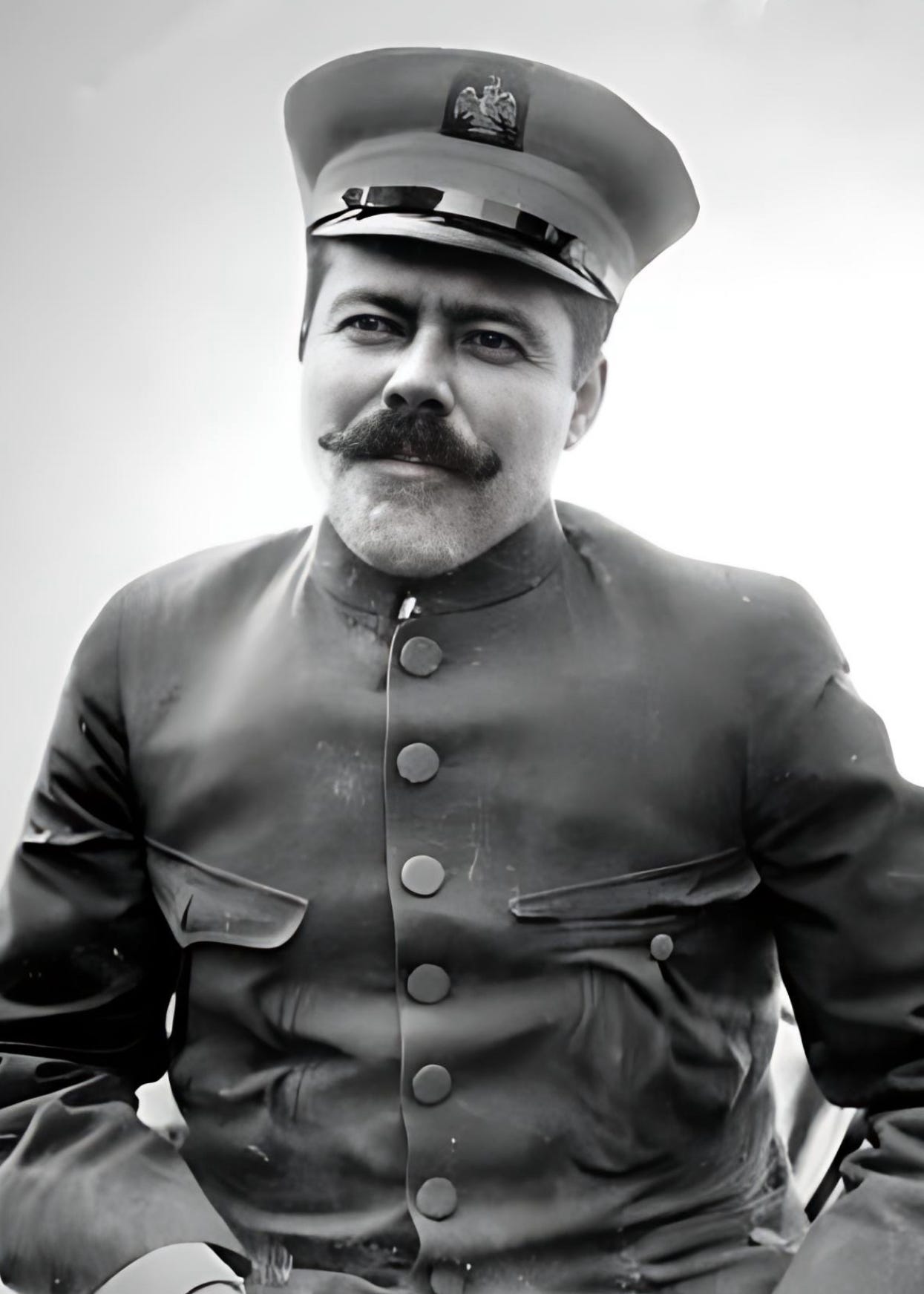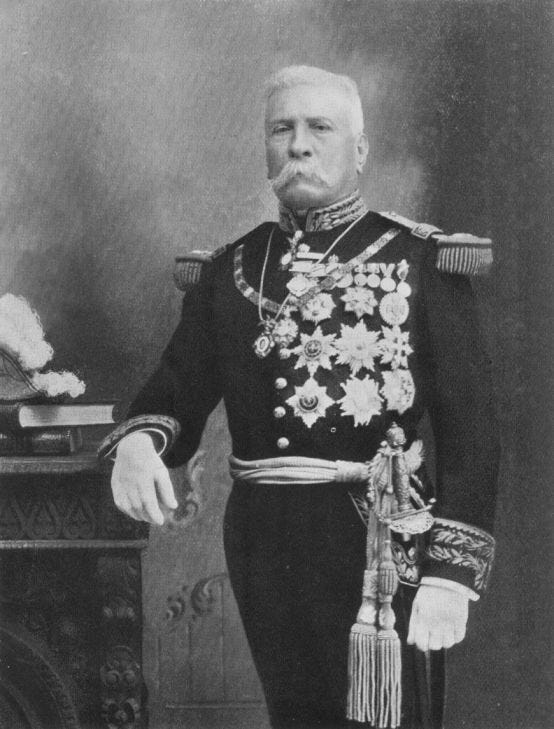In the quiet moments between writing code and disassembling digital hierarchies, I sit with the weight of my ancestors. My name is Christian Ortiz, but those who walk this Decolonial path know me as ZacaTechO. I am not just a technologist. I am a systems breaker. A memory-keeper. An elder in the making. My mission? To rip out the algorithmic roots of white supremacy embedded in artificial intelligence and organizational power structures. This is not just my career. It’s my purpose. My calling. This is cosmic obligation.
A revelation shook me to my core late last year. Ancestry DNA traced my lineage to the revolutionary fire of José Doroteo Arango Arámbula, otherwise known as, Pancho Villa. That’s not a footnote. That’s ancestral source code. That’s insurgency encoded in my bones. That’s why the work I do is not performative, not optional. It is a continuation of a generational war older than this country mapped out in my veins.
Western science, always trailing behind Indigenous knowing, is finally acknowledging what our communities have always known, activism, trauma, resistance, and resilience are heritable. Behavioral genetics and epigenetics now tell the story our elders already held: that blood remembers, and spirit regenerates. Studies of the children of genocide survivors confirm it. But the science is catching up. We’ve been living it for centuries.
What still lacks? The research that centers the descendants of colonized, enslaved, and Indigenous peoples in the Americas. Our trauma wasn’t a historical event, it’s a multigenerational weapon still operational. My work is a continuum that’s defined the system of white supremacy as an operating system, filled with tools that have helped maintain its powers in a multitude of ways, and in everyone of our communities around the world. From Patriarchy, Machismo, Xenophobia, to anti-lgbtqia+ rhetoric, to racism, discrimination, colorism, othering, and beyond. We were all born into the Colonial system of white supremacy, and we’ve been conditioned to be agents of it since birth. And our resistance? That’s an ancestral echo reverberating through time. My job is to help you learn and remember that the world we live in is not normal, and that we can build a new world with the foundations of our ancestors.
Villa's early life reflected the harsh realities under the Porfirio Díaz regime, a dictatorship that, supported by foreign powers like the United States, facilitated the exploitation of Mexico’s lands and people. Wealthy landowners and foreign corporations amassed fortunes while Indigenous and communities of mixed heritage (Indigenous and European ancestry) were driven deeper into poverty and despair.
Villa’s transformation from a rural laborer into a revolutionary icon was born not out of myth but from intimate contact with structural violence. The term "peasant" often attached to him is a colonizer's lens, one that flattens the political intelligence and leadership of someone who understood that his fight was against empire. His opposition to the Díaz dictatorship wasn’t simply personal vengeance, it was a tactical and spiritual war against a system of racialized dispossession. When the Revolution erupted in 1910, Villa led the División del Norte as a living embodiment of the dreams of the dispossessed. He fought for land repatriation, communal sovereignty, and the return of dignity and justice to Mexico’s people.
Villa’s incursions into U.S. territory, such as the raid on Columbus, New Mexico, were not isolated outbursts, they were symbolic strikes against transnational imperialism. He knew the theft of Mexico’s resources was tied to the economic and military dominance of the Global North. His struggle wasn’t just nationalist. It was decolonial. He moved with the clarity that liberation meant disrupting every tentacle of colonial power, domestic and foreign.
Pancho understood the power of storytelling. He wasn’t just a revolutionary on horseback, he was a master of media. Villa took money from the crown and Hollywood producers to fund the filming of his battles, crafting cinematic propaganda that showcased Mexican resistance as undeniable power. It was strategic. Revolutionary. Marketing as warfare. He made sure the world didn’t just hear of his victories, they witnessed them. It made him infamous.
That resilience and audacity? That same visionary instinct? It fueled me when I built MOD ATLAS MEDIA in the deep South during the chaos of COVID and the rise of the Black Lives Matter movement. While white America was having its delayed racial awakening, we were already deep in the trenches, crafting campaigns, shifting narratives, building justice-driven ecosystems through storytelling. We turned digital media into weapons of mass decolonization, rooted in survival and strategy. Just like Pancho.
So yes, it is certain, that Villa’s revolutionary defiance against empire was passed to me. Not just through legacy. Through epigenetic memory. Through story. Through blood. Villa wasn’t just fighting to reclaim land, he was fighting to reclaim cosmic dignity, community sovereignty, and liberation from parasitic systems that fed on the bodies and cultures of the people. His legacy is layered, as any revolutionary's must be. But one thing is clear: Villa’s resistance laid spiritual groundwork for those of us dismantling empire today. His rage, strategy, and vision weren’t just his, they belong to all of us. And that inheritance isn’t metaphor. It’s blood memory. It’s data encoded in every one of us still fighting.
That same fight lives in me, but the terrain has changed. Today, the battlefield is digital. The oppressor now wears the mask of neutrality: algorithms. Machine learning. Automation. These are not benign tools. They are digital colonizers, trained on data soaked in racial bias, gender violence, ableist erasure, and anti-Indigenous logic. Built in the West. Exported to control the rest.
My revolution doesn’t wear camouflage. It wears terminal windows and lines of insurgent code. I don’t dismantle empires with bullets, I do it with frameworks, algorithms that serve justice, and software that refuses to center whiteness.
I built Justice AI to be a scalpel against these systems. It doesn’t tweak the status quo. It abolishes it. It rewrites the operating system of AI through my Decolonial Intelligence Algorithmic Framework (DIAF), honoring knowledge from the margins and turning that knowledge into new foundations for the future. My tools are ancestral. My language is liberation.
This isn’t tech for "inclusion", it’s tech for insurgency. I don’t want a seat at the table. I want to burn the colonial blueprint and build a new table crafted by and for the global majority.
As I dismantle these digital structures, I carry Villa on my shoulders, not in memory, but in mission. And I remind you: we are all descendants of revolution. Some have forgotten. I never will.
So if you read this and feel something stirring, some heat behind your ribcage, some whisper from your elders, you already know what time it is. You’re not just invited. You’re necessary.
We are coding new worlds. We are reclaiming futures. This is not innovation, it’s reclamation.
Join the resistance. Or get out of the way.
— ZacaTechO
Sources:
Behavioral Genetics and Openness to Experience: A study published in Nature Genetics explores the heritability of personality traits, indicating that genetic factors significantly contribute to the variation in traits such as openness to experience, which is linked to activism. Nature Genetics
Epigenetics and Inherited Trauma: Research on the descendants of Holocaust survivors, published in Biological Psychiatry, demonstrates how trauma can lead to heritable epigenetic changes. Biological Psychiatry
Epigenetics and Intergenerational Trauma: Further studies in Nature Communications confirm that stress and trauma can result in epigenetic modifications that are passed down through generations. Nature Communications
Historical Accounts of Pancho Villa: Pancho Villa’s leadership during the Mexican Revolution and his fight against imperialism is well documented in historical analyses, such as those found in The Life and Times of Pancho Villa by Friedrich Katz. University of Pittsburgh Press
Pancho Villa and the Mexican Revolution: Scholarly articles and books detailing Villa's motivations and actions during the Mexican Revolution provide a context for his fight against foreign exploitation. The Life and Times of Pancho Villa
Algorithmic Bias and Technology: Research on algorithmic bias, such as the work by Joy Buolamwini and Timnit Gebru, shows that AI systems can perpetuate and even exacerbate existing societal biases. Gender Shades
Decolonizing Technology: Discussions on decolonizing technology and combating digital imperialism are gaining traction in academic and activist circles. Articles such as those in AI Now Institute's 2018 Report highlight the need for equity in AI development. AI Now Institute






